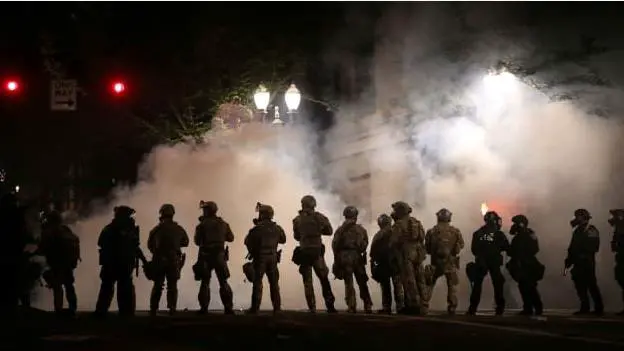Sino-Japanese relations have seen ups and downs through the years. However, events which transpired through 2012 froze relations when Japan decided to "nationalize" China's Diaoyu Islands. The trust deficit on the part of Japan increased exponentially. It was also observed that Japan had been making efforts to revise its anti-war Constitution in an attempt to furnish a regular military. It can be inferred that such measures stemmed from the growing trust deficit as Japanese leaders mistook China as a threat to their country, thus further complicating the relations.
After dealing with strained ties for the past 6 years, its finally appears bilateral are starting to progress towards normalcy. This comes at a unique time. 2018 marks the 40th anniversary of the signing of the Treaty of Peace and Friendship between Japan and China, the 20th anniversary of the China-Japan Joint Declaration and the 10th anniversary of China-Japan Joint Statement on All-round Promotion of Strategic Relationship of Mutual Benefit. 2018 is so far playing out to be an ice breaking year for the world's 2nd largest and 3rd largest economies. Earlier this year, Taro Kono, Japan's Minister for Foreign Affairs, made his first state visit to Beijing in January. Now that gesture has been reciprocated by Chinese State Councilor and Foreign Minister Wang Yi, who visited Japan from April 15 to April 17.
The visit by China's top diplomat holds a lot of importance, owing to the rocky past few years two countries have dealt with. But on top of restoring bilateral ties, the meeting will also set the tone for some upcoming significant events, such as an inter-Korea summit this month, as well as a meeting between North Korean leader Kim Jong Un and U.S. President Donald Trump. Japanese prime minister Shinzo Abe has also been pushing to host Chinese premier Li Keqiang in May for a trilateral summit with South Korean president Moon Jae-in. China has played a significant role in making these events possible. This is the reason why China's Japan specialist, Wang Yi, accepted the Japanese invitation. On the bilateral front, one important outcome of the visit is that both sides have agreed to go forward with mutual visits by Japanese Prime Minister Shinzo Abe and Chinese President Xi Jinping, which will be a major step towards normalizing relations.
During his time in Tokyo, Wang Yi also co-chaired the fourth China-Japan High-level Economic Dialogue with Japanese Foreign Minister Taro Kono. The meeting is the first in eight years. The mechanism was first launched in 2007, with subsequent economic exchanges takign place in 2009 and 2010. The resumpion of these talks is a signal that both sides understand there is tremendous room for economic cooperation between the two countries. As the 2nd and 3rd largest economies in the world, as well as one-two in Asia, an economic convergence between China and Japan will surely create win-win scenarios for both sides, and the region at large. This has been witnessed by Sino-Japanese trade through 2017 appreciating by over 10% compared to 2016 to reach $300 billion US dollars. In 2017, Japanese companies invested around $3.2 billion in China, which is 5.3% higher than the previous year. Wang Yi highlighted at the High-Level Economic Dialogue that China and Japan need to enhance "cooperation in areas such as energy conservation and environmental protection, science and technology innovation, high-end manufacturing, finance and banking, sharing economy, medical care and elderly care industries. The two sides should jointly push for outcomes of cooperation under the framework of the Belt and Road Initiative, and make them new highlights of bilateral cooperation" Taro Kono, for his part, said "Japan attaches high importance to the important messages sent by Chinese President Xi Jinping at the opening ceremony of the Boao Forum for Asia Annual Conference 2018, and in face of rising protectionism, the free trade system centered on the World Trade Organization (WTO) should be safeguarded."
During the visit, Wang Yi also met with Japanese Prime Minister Shinzo Abe at his residence on Monday, with oth sides agreeing that improving bilateral relations is vital, with both suggesting further high level exchanges will help bridge the gaps. They also agreed that the rising tide of protectionism is sabotaging the global free trade system and is detrimental globalization. This suggestion holds significant interest, given that Shinzo Abe is scheduled to meet with Donald Trump this week.
Wang Yi, a seasoned diplomat, has served as the Chinese government's point-man on Japan for numerous years. Through his experience, and through the guidance of President Xi Jinping, Wang Yi's time in Tokyo this week has helped mend ties with Japan. The trip is being hailed as a major success by both sides. "Japan attaches high importance to its relationship with China. It is willing to take the opportunity of the 40th anniversary of the signing of the Japan-China Treaty of Peace and Friendship to promote comprehensive improvement of bilateral ties, to realize high-level exchanges, and to expand cooperation under the framework of strategic relationship of mutual benefit," said Japanese Prime Minister Shinzo Abe following his session with Wang Yi.
(CHINA.ORG.CN)
 简体中文
简体中文



